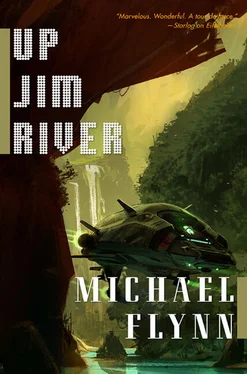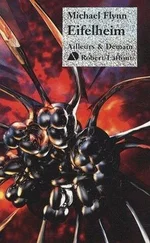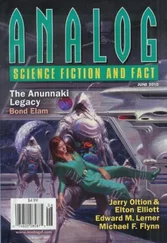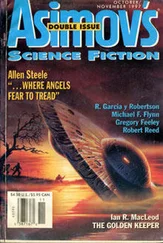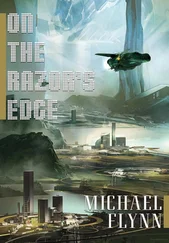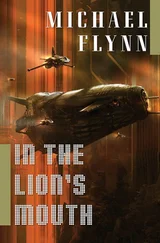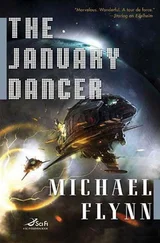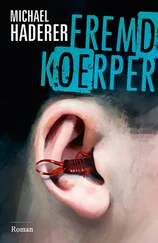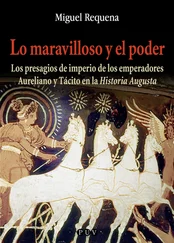The Thistles divided their daylight into twelve hours starting from the sunrise ceremony, but unlike folk on other worlds they did not number their hours. Instead, each had a name. Thus, the third hour after equatorial sunrise was Bravely Working Hour, presumably because by that time most people were at their jobs. The other hours were named in like manner after the rhythms of life, and in this wise the Thistles synchronized their activities. When at the Mid-day Snacking Hour one sat to a light meal of biscuits and cheeses, one experienced the harmony of knowing that everyone in the sheen was doing the very same. There might be some dissonance with other sheens, or even with those districts in the Eastern Marshes where dawn arrived before its appointed hour, but it was generally acknowledged that the Eastern Marshes were out of synch in more than their sunrise, and the folk of other sheens were odd beyond all credit.
There were no public clocks. The right of proclaiming the Hours was reserved to the emperor. Within the palace complex stood a single cesium clock of unimaginably ancient vintage. It did not match the Thistlean hours, having been calibrated long ago to the tock of a different world, but the Sages of the Clock would note the time displayed and perform a ritual called the Transposition of Times, and determine when each new local hour began. Uncounted people on uncounted worlds spent their workday “watching the clock,” but on Thistlewaite there were workers actually paid to do so. The Voice of the Sheen would then, to trumpet blast and gongs, announce the Hour from the parapet of the imperial palace, and the cable channels would carry her word throughout the sheen.
Méarana heard the trumpets as she made her way down Poultry Street, a narrow lane whose coops and butchers had long given way to mobi stores and shopping arcades, leaving only subtle aromatic reminders of its original inhabitants. Méarana said a word equally pungent and quickened her pace, for the trumpet meant that she would be late for her command performance. She tolerated Donovan’s eccentricities on most things, but the packing of her clothing was not among them and that had delayed her.
White Rod was as pale as his wand of office when Méarana finally appeared. Trembling, he led her into the throne room, where Resilient Services sat alone at High Tea, to all appearances sorely vexed. Méarana thought she would need a suantraí to sooth the man’s palpable anxiety. She waited for White Rod’s underling to pull her chair out for her. Instead, underlings hesitated, emperors rose, and guests sat in fits and starts. Apparently, custom required that He Who Serves the Tea was to sit last of all; but because the tea had already been poured before Méarana’s entrance, harmony was now broken. She did not see why this mattered at all, least of all that it mattered so terribly, but she supposed that now there would be a two-headed calf born somewhere for which her lateness could be blamed. She was a Die Bolder, born and bred, and a devotee of causality. Concatenation struck her as absurd.
You would think that a harper would know all about harmony, the emperor told her when that quality had been restored. It was an elliptical rebuke, with a great deal of opprobrium in the ellipsis. “It is a terrible discourtesy with which to end my visit,” she allowed.
The emperor of the Morning Dew sat back a little in his chair. Today he wore a dinner jacket of bright green, done up with contrasting red embroidery, with a ruffled cravat at his throat. On his head, he had placed a white powdered wig bearing a long pigtail down his back. “End visit,” he said, as if examining the phrase for possible alternative meanings.
“Yes. Donovan and I leave on the evening shuttle to rendezvous with the throughliner Srini Siddiqi . My mother awaits me.”
“Your mother. Yes. Play me,” he said as he poured a second cup of tea and, using a silver tongs, dropped a lump of sugar in it, “song of your mother.”
Hitherto, the emperor’s requests had been for songs of adventure, of faraway planets, of romance and distance. The harper played Mother as a geantraí: a jaunty tune that conjured her in the moment in which Bridget ban strode across the decks of Hot Gates like the queen of High Tara—tall, magnificent, purposeful. Somehow, though, as her fingers wandered across the strings, a goltraí crept in: a keening lament as heartbreaking as all the losses of the world. By then, she had been transported by her own music, as sometimes befell when the harp took charge and the strings played her fingers rather than the proper way round.
The emperor’s sob startled her from her trance and, realizing what she had done, she transformed the music once more into geantraí, pivoted by progressions out of the seventh mode and lessening his black bile with the eighth. It was intricate fingerwork, finding the right cadences so as to shift without dissonance. When she had finished, she laid her hand flat against the strings to still them; though it seemed to her that the strings still wanted plucking and vibrated softly even so.
“I did not mean to upset you, Jimmy,” she said.
“No, no, quite all right. Chin-chin. Emperor should be upset now and then. Tedious business, remaining always in balance—always in harmony.” A quick smile and with a nod toward the harp. “As you must know.”
“Perhaps I can play a song of your own world. Thistlewaite. Something pleasant and hopeful.”
“World hopeless. Keeps breaking.”
“And yet you persist. My mother always said courage was one of the Four Great Strengths.”
“You mother. Yes. What other three?”
“Prudence, justice, and moderation.”
The emperor nodded. “Those good strengths for ruler.”
“How does your First Cautionary Book begin? I could try to set it.” Méarana’s fingers poised ready to wrest a melody from her strings, and Jimmy began to recite in a singsong voice.
“In day of gods, seed-ships come.
Out of night eternal, to quicken life
And stir our olive seas. Oh, beam it down,
Oh, beam it down, brave captains say.
So yang from sky meet yin on ground.
Thrusting deep within….”
Afterward, Méarana said, “This worm trembles that she must leave so soon.” She did not sound much like a trembling worm, having had little practice in the art.
Jimmy laid a hand on her bare arm. “Do not go,” he said with eyes as wide as sorrow. “How else I hear such distant places? Duty pin me forever to Jenlùshy like butterfly to board. You stay here. Be empress. Bring songs of places I never see.”
Méarana slid her arm gently from his touch. She adjusted the green shawl around her shoulders. “I cannot. I would be a prisoner here.”
“In chains of gold,” he told her. “In velvet bands.”
“Ochone! Are chains of gold chains no less? I must go. It is a geasa upon me.”
The emperor of the Morning Dew slumped a little in his seat. “Obligation. Yes, I understand. You must find her.”
She said nothing for a time, stroking the strings of her harp, but without striking them, so that they only murmured but did not speak. “How did you know?”
The emperor gestured elegantly toward the harp. “What else? Such sorrow come only from death or loss. And death not drive you to cross whole Spiral Arm.”
Méarana closed her eyes. “No one has heard from her in three metric years. Many search, myself most of all.”
Jimmy Barcelona lifted his teacup to his lips and his eyes searched the courtiers who lined the walls out of earshot, engaged in faux conversations. “Then,” he said, dropping his voice, “I, too, search. I go with you…”
Méarana had expected the invitation to stay; but not the offer to go. “Ye… Ye cannae,” she said, falling into her native accents. “Jenlùshy needs you. Mother selected you because of your expertise in infrastructure. You must stay here and rebuild the Morning Dew so that it can survive the next thistlequake.”
Читать дальше
